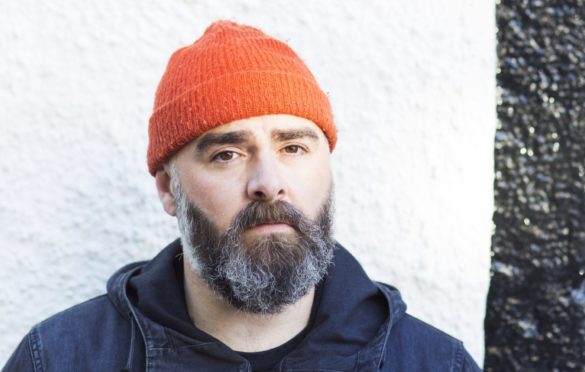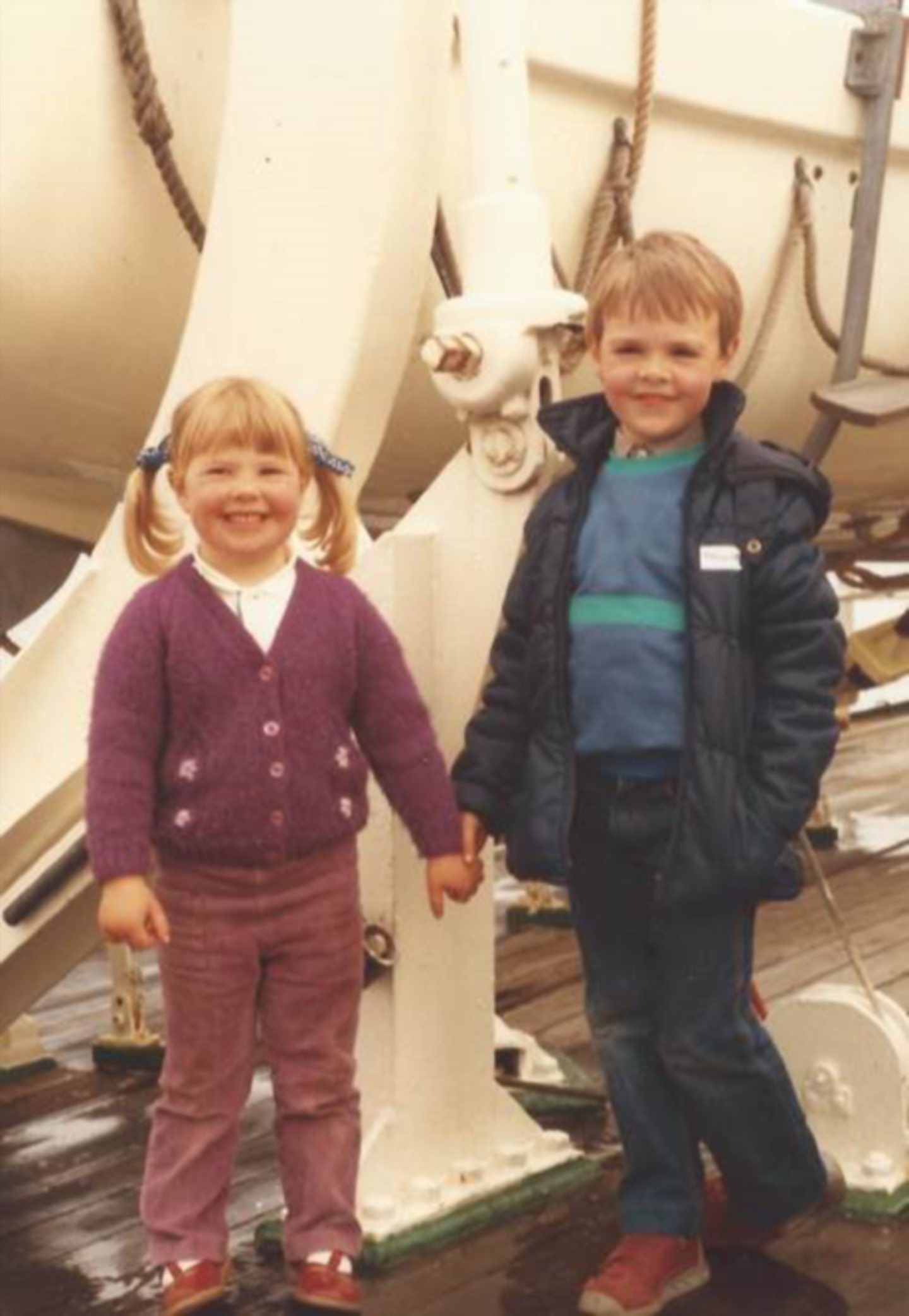
Stephen McAll looks at a faded childhood photograph and knows the little boy, smiling happily with his sister as they hold hands and head off on holiday, is him. Everyone tells him it is.
The musician, himself, has no childhood memories after precious recollections were lost beneath a barrage of blows as he was beaten up by a gang in his home town.
Stephen, who records and performs as Constant Follower, was 17 when he was attacked in East Kilbride. He woke up in hospital with a catastrophic head injury and his childhood memories stolen from him. A witness who saw the attack would later tell him “a group of around 10 people were taking turns jumping on my head. It became so swollen that when my parents came to pick me up from hospital they didn’t recognise me”.
Recovery was – and continues to be – a challenge, but writing music, he realised, was one of the most effective forms of therapy. Prior to the attack McAll was a keen guitarist and was in the process of writing an album, but paralysis along the left side of his body as well as post-traumatic psychosis and PTSD meant he could no longer enjoy music in the same way.
He said: “When I got home from the hospital, a couple of weeks later I looked at a picture of me and my sister Lou on holiday and there was a just a blank. I didn’t recognise myself or my sister as a child. I couldn’t remember the place, or anything about it. It was at that moment I realised that all my childhood memories were gone.
“Now, I’ve looked at so many photos and talked to my family and friends, and I feel like I have childhood memories but I only really have memories of stories people have told me about things that happened and memories of photographs. I can’t remember doing something or going somewhere, the details of it. The smells or feelings. I just remember an image.
“Every now and then I smell something strong, like a certain perfume or something, and a huge sense of memory will come back to me, but without pictures or words. There is just a sense of there being something there but I can never remember what it is. It’s quite a distressing feeling. No memories have come back. Or, if they have, they are mixed in with all these false memories now.
“I wasn’t really interested in music after it happened. Things like that just became completely unimportant overnight. I was just trying to survive. One night the long-term relationship I was in collapsed. I went back to my house and took thousands of pounds worth of instruments and smashed it all up. The frustration of not being able to write or play music just became too much. I remember waking up and having these pieces of guitar all around me and realising I had to get away from that situation.”
The next decade was spent in his family’s cabin in Tighnabruaich, in Argyll and he began to write again. Songs were born from raw ideas – thoughts and feelings forged in fleeting moments – and recorded on old cassettes.
“As soon as I got away from the city I felt so much better,” McAll explained from his home in Stirling. “The city became toxic to me. The place where I was writing was a small cabin in this massive landscape with endless skies.” Music is increasingly seen as an effective form of treatment across a range of conditions, from cancer-related fatigue to Parkinson’s and dementia. McAll found his ambient, experimental folk music was life-changing as he coped with PTSD, memory failure and cluster headaches. The latter are indescribably painful and recent research by Keele University found sufferers plagued by the rare condition were often misdiagnosed and their condition mismanaged.
“You can talk about stiff upper lips and all that but you can’t get better on your own. It’s amazing how many people suffer for so long and let their lives fall apart around them before they decide to seek help,” he said. “As soon as you’re on a downward slope, that’s when to ask for help. It should be taught in schools. It takes bravery, but you need to pick up the phone and call someone, like the mental health charity Mind or Help Musicians. ”
The latter is a charity offering support for musicians, including creative development funding, health and welfare services and a mental health helpline.
“If it wasn’t for Help Musicians I wouldn’t be where I am right now,” said McAll. “They’re the reason I have an album coming out.”
A recent study by Mind highlighted 65% of adults over 25 and 75% of young people aged 13-24 with an existing mental health problem reported worse mental health during lockdown. Meanwhile, 22% of adults with no history of mental health now say they have issues.
“Men from my sort of friend groups never wanted to talk to anyone or seek therapy,” he said. “All the stuff gets bottled up but it eventually will come out one way or another.
“For me, I often realise after writing a song what it’s about and that’s a huge form of therapy. One song that means a lot about a specific thing to me could mean just as much but something completely different to others. That’s what brings me joy, the thought of people attaching their own meaning to the music I make.”
Set Aside Some Time by Constant Follower is out now

Enjoy the convenience of having The Sunday Post delivered as a digital ePaper straight to your smartphone, tablet or computer.
Subscribe for only £5.49 a month and enjoy all the benefits of the printed paper as a digital replica.
Subscribe